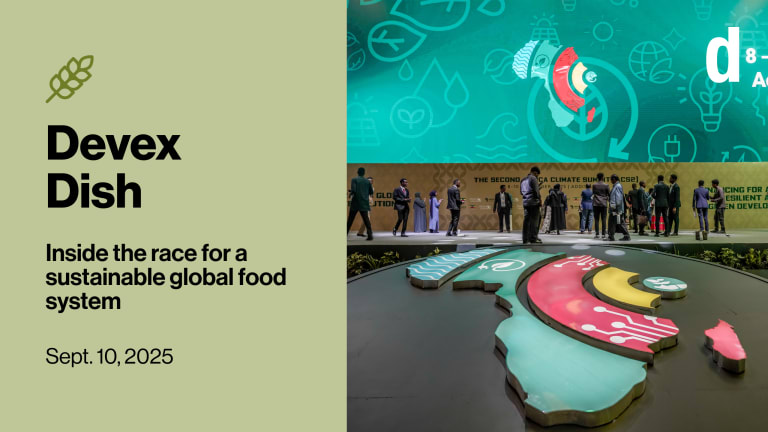
Next week, more than 5,000 people — including some sixty Heads of State and government — will gather in Istanbul for the World Humanitarian Summit. Despite worries that this will be yet another expensive talk-shop, this is the best chance we have to drive meaningful change on one of the most pressing issues facing the world today.
Only two weeks ago, after taking part in months of preparatory discussions, Médecins Sans Frontières announced they will not be attending, claiming the summit has lost its way and become “a fig leaf of good intentions.” Many worry that, lacking the legal clout of a long-term, integrated intergovernmental process, such as that which created the Sustainable Development Goals, or last year’s climate change agreement, member states have little reason to commit to anything new.
Yet, as the biggest intergovernmental summit of the year — and the first of its kind — the WHS comes at a time of extreme humanitarian need, shocking violations of international humanitarian law and a growing consensus that the current systems and financing of emergency relief are in need of major reform. Those attending the summit shoulder a heavy responsibility.
Even though the world spends more than ever before on providing lifesaving assistance — $25 billion last year alone, 12 times more than 15 years ago — our generosity has never been more insufficient. We are facing a widening funding gap for humanitarian action, estimated to be around $15 billion. The WHS is a crucial opportunity to rethink the humanitarian financing system, a critical challenge with three interdependent aspects. First we must look to reduce humanitarian need, addressing its root causes wherever possible. Second, we must mobilize additional funds through established and innovative financing mechanisms. And third, we must seek to radically improve the efficiency of the humanitarian aid system.
In our pre-summit report, “Too Important to Fail,” my fellow members of the High-Level Panel on Humanitarian Financing called for a new and sustainable model of humanitarian aid. In Istanbul, our hope is that there will be a “grand bargain” between the world’s biggest donors and implementing agencies on how they intend to change their behaviors over the next few years. We need to reduce complex donor requirements, damaging interagency competition, unnecessary duplication and high overheads that compromise the current system.
Another critical part of the behavior change needed is a new approach toward building long-term capacity in local communities. It is staggering to see how little official international humanitarian aid currently goes direct to local actors — 0.2 percent at the last count. If we continue to allocate only $1 in every $500 spent on humanitarian interventions directly to first responders, we have little chance of building long-term capacity close to the ground. Humanitarian relief need not be something that arrives on planes from faraway places. It is only by building community resilience that we will be able to anticipate and respond more efficiently to the emergencies of the future.
If the WHS is an important opportunity to reform the way our humanitarian system functions, it must also be an opportunity to reform the way we think about the system — to redefine what we mean by humanitarian. Even the measures we use to track interventions — almost always focused on official aid flows from a few rich countries to the rest of the world — are outdated.
A new way of tracking the totality of humanitarian support — including increasingly important flows from middle income countries, domestic spending by countries all over the world, and private contributions from philanthropists and individuals — will help to build a more complete picture of our collective response to emergencies. It will also help us to usher in a new framework of universal shared responsibility, not of crude divisions between developed and developing countries, between state and non-state actors, and between humanitarian and development expenditure.
I believe next week’s summit will ask these real and difficult questions of the humanitarian system and its implementation. If there’s a “fig-leaf of good intentions,” it isn’t preserving many people’s modesty, as far I can see. The build-up to this summit has made it increasingly clear that the status quo is simply not an option.
I want to see the summit result in a new resolve, underpinned by concrete measures, to nurture local capacity as a means to more effective humanitarian interventions and as an end in itself. I want to see a full range of stakeholders come together to implement what has been the most ambitious effort of modern times to make short and long term, fundamental reforms to our humanitarian system. Putting in place a system that can raise sufficient money, with sufficient reliability, to support those most acutely affected by disaster, disease or displacement is a basic responsibility and one that is well within our means. To ensure that our fellow human beings no longer live or die without dignity for the lack of money — I think that must be worth a shot.
Join the Devex community and access more in-depth analysis, breaking news and business advice — and a host of other services — on international development, humanitarian aid and global health.








